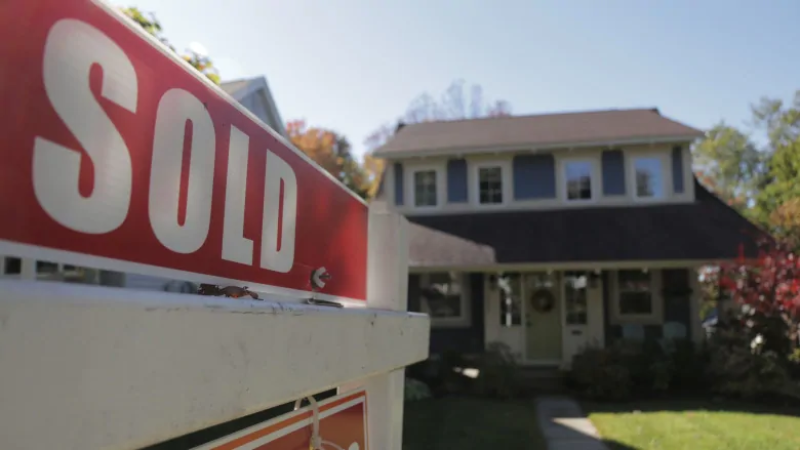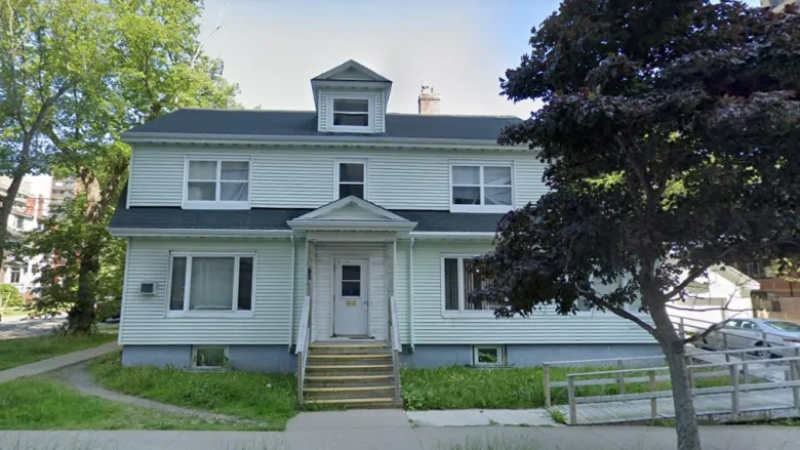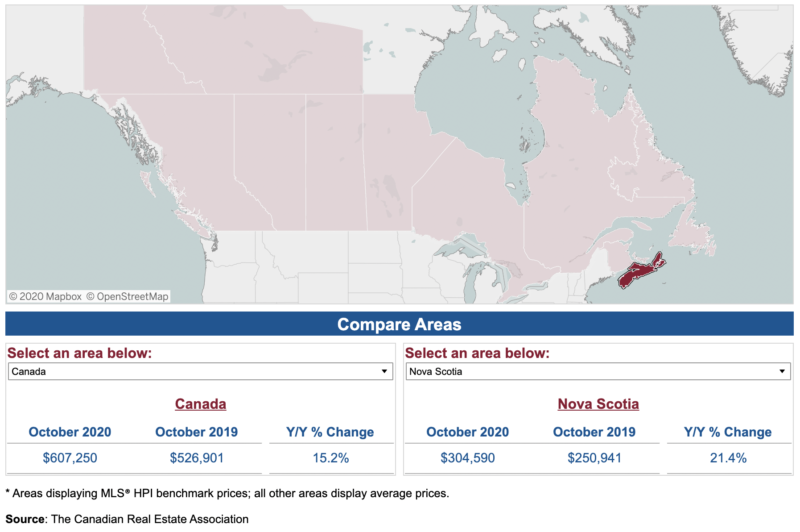It’s no surprise the recently-popped Atlantic bubble, along with the already attractive lower cost of living and high quality of life in Nova Scotia, has increased migration from other provinces.
Both the locals and newcomers are buying homes remotely, sight unseen. They do it via Zoom, FaceTime or virtual viewings. It’s reflective of that tired but accurate phrase: 'This is the new normal.'
“There were 6,189 sales in Nova Scotia in 2018, 5,132 sales in 2019 and 2020’s year-to-date is sitting at 3,383 sales. That is a 34.1 per cent decrease from last year,” says Allie White, Realtor with Keller Williams Select Realty. (Updated YTD figures for sales in the province from NSAR: 2018 – 11,116; 2019 – 12,266; 2020 – 12,952).
Because of that dip, the average house lists for five to 10 per cent above asking, and 71 per cent are being sold over asking.
“Putting an offer on a house now means you could be competing with five to 20 other offers,” says White. “Buyers are looking at the same houses. And if it’s the one for you, I can guarantee it’s the one for someone else.”
The average house listing nowadays is 10 days on the market, compared to 34 days in 2018.
The pandemic brought new challenges to the housing market. Just as PPE and cleaning supplies were flying off the shelves, housing supplies suffered a similar fate.
“Purchase and rental housing supplies are near historic lows in Nova Scotia,” says Roger Boutilier, Chief Executive Officer of NSAR. “This is not a new situation, but it is a worsening situation.”
All of these factors are creating more complications for affordable housing, which is already limited in Halifax due to population growth.
Housing is defined as affordable when people are able to pay 30 per cent or less of their gross income to afford good-condition and livable housing. This cost includes rent and utilities for tenants or mortgage payments, utilities and property taxes for owners.
“Right now, I see there’s a problem with the rental market with increases in rent prices,” says White.
“I have clients that have purchased income properties; they fear backlash from charging what’s the suited rent for the property and maybe selling themselves short ultimately. There are still good people out there!”
People are looking to afford cheaper rent, or even buy a house. They are looking to move away from job centres where housing isn’t as expensive.
“Everyone needs safe, accessible and affordable housing that fits their needs,” says Boutilier.

Some people are even going further, outside of the city, to smaller markets like Chester and Windsor.
This trend creates an increasing need for more connective transit, congestion of roads, traffic pressure, longer commutes and requests for higher wages. While our growing population is key to our economic strength, the outward migration of city dwellers can have negative impacts on economic growth, community stagnation and environmental pollution.
We need strategies to find affordable housing for new-home buyers, new professionals and recent graduates.
Halifax Chamber members have said that buying a home in Nova Scotia can be a roadblock to staying here after education or for employment.
“There needs to be partnerships between government, developers, not-for-profits, professional associations and more to ensure we have the healthy housing mix we need,” says Boutilier.
The city is also seeing severe declines in home sales as the economy recovers from the pandemic. There’re a low inventory of housing and an inability to keep it affordable.
“The supply is not meeting demand, and more needs to be done to increase stock through programs like the federal Rapid Housing Initiative, expanding access to grants and loans for first-time buyer, and ensuring development permits move quickly through the system,” says Boutilier.
On November 16, 2020, it was announced that the new Halifax Regional Council will start working on a detailed affordable housing plan.
The city received $8.6 million through the federal Rapid Housing Initiative to spend on affordable housing. The plan is to build 28 units, each costing $311,000, for women and indigenous communities as its target populations.
It was announced that proposals from Adsum House, the North End Community Health Association and the Mi'kmaq Friendship Centre are part of the funding allotted for Halifax.
The property owned by the Mi'kmaq Friendship Centre's project at 5853 College St. will provide emergency shelter and permanent housing for its urban Indigenous clients.
Yet, on the same day, it was announced that the affordable housing project on Gottingen street was scrapped

“I believe the government should be more proactive when it comes to the rental market,” says White. “But ultimately, it’s hard to predict the future, and nobody should. There are so many variables when it comes to purchasing a home.”
With the pent-up demand from the first two months of lockdown, the housing market is looking more like a plugged funnel. “People have recognized the value of a home during the pandemic, since many were stuck at home during the lockdown,” says Boutilier.
“People were not moving as much then, and now people who may have looked at buying and selling before the pandemic, or during, are implementing those plans.”
While much of the population of Halifax is to buy or sell, they are running into shortages and affordability issues.
“Real estate works on a supply and demand model. The trend will change once the number of buyers equals the number of sellers,” says White. “Right now, we have an abundance of buyers and not enough inventory of houses due to the rate homes are selling at.”
The future of affordable housing, as Boutilier said, depends on partnerships within the community.
With housing prices up 11.5% and with a 1% vacancy rate, it can be a challenge to find a place to live. Halifax Chamber President and CEO continues to ask the provincial government to relay greater powers to the municipality, to ensure quicker development approvals which should hopefully increase the vacancy rate and drive down prices.
“We must work together, put egos aside and plan out a strategy that does not get caught up in bureaucratic red tape,” says Boutilier.
“We need to ensure housing remains affordable, and cost/value remains one of Nova Scotia’s competitive advantages.” ■

< Back to Articles | Topics: Responsible Business

